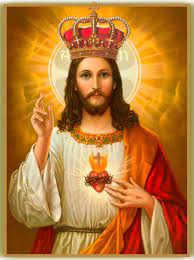The 3rd Sunday in November (21st this year) is celebrated in the churches year as the festival of “Christ the King”; a time we acknowledge that Jesus is the ruler of what he called the “Kingdom of Heaven”. In his lifetime, people struggled to make sense of Jesus; they thought he might be the much anticipated “messiah”, the ruler sent from God who would finally set the Jewish people free, but they really did not know what that ruler would look like. Would he be a political revolutionary, a soldier, a priest? At the end, it seems that the Jewish religious authorities tried to persuade the Romans that he claimed to be a king who threatened their rule. In his Gospel, John has an exchange between the Pontius Pilate, the Roman Governor and Jesus, where Pilate appears baffled by Jesus, who in one breath says that he is a king and then that his kingdom is not of this world. But Pilate was, indeed is, not alone in being puzzled. Throughout the ages, Christians have had to live with the tension in Jesus’s words; his Kingdom is not of this world, but we live in this world; he rules over the world, but he is not of the world. At the heart of this is Jesus’s insight that the world as we live in is not how the world is intended to be; through his life and death, he shows us what our world and indeed ourselves should be. That is a world lived out in love, not coercion; a world of self-giving, not self-gain. It is a pattern for living that I doubt any of us achieve, but Jesus shows us what it looks like. That is why Christians acknowledge him as King; but perhaps it is so counter to the world we live in that it is not surprising Pilate and the authorities of his day could not understand his authority.
